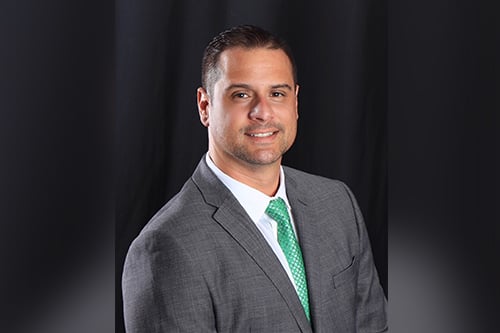

A product liability claim presents some of the highest dollar loss potential for cannabis companies, according to Chris Boden (pictured), cannabis practice group team leader at the California-based wholesale insurance broker, Crouse and Associates Insurance Services. It’s one of the most severe exposures cannabis companies face, and yet not all businesses purchase product liability insurance coverage.
Many small cannabis companies start off as passion projects. While the owners might be cannabis experts, they’re not always totally business or insurance savvy. They rely on their insurance agents and brokers to secure their coverage needs, but, unfortunately, even they sometimes miss the mark when it comes to product liability, according to Boden.
“I’ve seen more times than I’d wish when an agent didn’t understand that a policy didn’t have product liability, or didn’t realize they weren’t adequately insuring it,” said Boden. “They’d get excited about a quote for $1,500, but what they’ve really got is a $1,500 piece of paper – and it’s not worth the paper it’s written on. The chances of a slip and fall happening (at a small grow op) are very minimal – that’s not where claims are going to arise.
“What’s much more likely to cause a claim is a customer turning around and saying: ‘Your product made me sick.’ The accusation doesn’t necessarily have to be warranted, and the product might be perfectly on spec, you’re still going to have to fight that claim regardless of whether it’s true or not. And if you don’t have product liability insurance coverage in place, then you’re going to have to pay out of pocket to defend yourself.”
Most cannabis insurance policies are dealt with in the surplus lines market. This means there’s more room for variation in the policy wording, said Boden, and it can lead to agents missing coverage exclusions. Nine times out of 10, the general liability policy and the product liability policy are separate. On the odd occasion when the coverages are packaged together, while it makes life easier for the insured, this is when the agents really have to “do their due diligence” and make sure the coverage is adequate.
“Sometimes, an agent will get a quote, they’ll see the limit, and they’ll think it’s good. Unless you’ve dealt with cannabis insureds before, or you’ve been working in the cannabis industry for some time, you wouldn’t know that there’s a potential cannabis health hazard exclusion in the policy,” Boden told Insurance Business. “When I was a retail agent, I put a lot of my trust in the wholesale broker I was working with to make sure they pointed out what was and was not covered in the policy. But in reality, that didn’t always happen. It was my job, my due diligence, and I learned pretty quickly that I had to be the one asking the questions.
“If you don’t know what something means, you’ve got to ask. For example, I had a call recently about a policy with a manually typed in limitation that was specific to the insured. I’ve never seen it before. I had no idea what it was, so I called the underwriter who sent it to me to chat it through. It was a specific caveat in this insured’s policy where, because they were knowingly insuring to full value, there was a stipulation on their policy that I’d never seen before – and it was manually typed on the notes. When something like that happens, get on the phone, call the underwriter or a specialist and see if anyone can help you.”
There’s one final point that Boden likes to stress with the agents he works with: always get proof that you offered product liability coverage. Telling the client about the coverage is the first step, recording the fact that you did that is the second. Because it’s all too easy for a client to turn down product liability coverage, suffer a claim, and then accuse their agent of not selling them appropriate coverage. Boden commented: “Whether you get a signed document or an email, you need a record to keep in your file that says: ‘I was offered product liability coverage but I chose to decline it.’ That can help if a client accuses you post-claim of not providing adequate coverage or service.”
